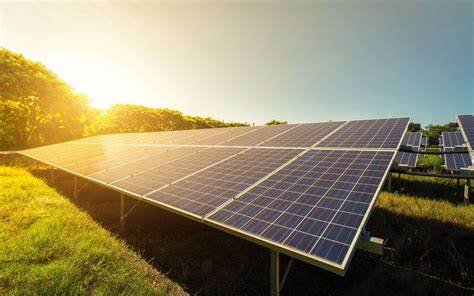Residential solar panels have become a popular choice for homeowners looking to reduce their carbon footprint and energy bills. However, the efficiency of solar panels can vary greatly depending on several factors, with weather and location playing pivotal roles. This article delves into how these elements impact the performance of solar panels, providing insights into optimizing their efficiency.
Understanding Solar Panel Efficiency
What is Solar Panel Efficiency?
Solar panel efficiency refers to the ability of a solar panel to convert sunlight into usable electricity. Higher efficiency means more electricity is generated from the same amount of sunlight. Efficiency is influenced by various factors, including the quality of the solar cells, the design of the panel, and environmental conditions.
Why Efficiency Matters?
Efficiency is crucial because it determines how much power your solar system can generate. Higher efficiency panels can produce more energy in less space, which is particularly beneficial for homes with limited roof area. Additionally, more efficient panels can contribute to greater overall savings on electricity bills.
The Impact of Weather on Solar Panels
Sunlight and Solar Panel Performance
The most obvious weather-related factor affecting solar panel efficiency is sunlight. Solar panels rely on direct sunlight to generate electricity. Therefore, locations with abundant sunshine typically see higher solar energy production. Conversely, areas with frequent cloud cover or long winters with minimal daylight can experience reduced solar output.
Temperature Effects
While solar panels need sunlight to function, extreme temperatures can impact their efficiency. Interestingly, solar panels can become less efficient as temperatures rise. High heat can increase the electrical resistance within the solar cells, reducing their ability to generate power. Conversely, cooler temperatures can enhance panel efficiency, provided there is ample sunlight.
Rain and Snow
Rain and snow can affect solar panel performance in different ways. Rain can benefit solar panels by cleaning off dust and debris that might block sunlight. However, prolonged periods of rain mean less sunlight and thus, lower energy production. Snow can cover panels and block sunlight, but light snow usually melts quickly, and panels are designed to bear the weight of heavy snow loads.
Location-Based Factors
Geographic Location
Your geographic location is one of the most significant determinants of solar panel efficiency. Areas closer to the equator receive more direct sunlight year-round, making them ideal for solar energy production. In contrast, regions at higher latitudes experience more seasonal variation in sunlight, with shorter days in the winter and longer days in the summer.
Altitude
Higher altitudes often mean more intense sunlight due to the thinner atmosphere. This can increase solar panel efficiency. However, high-altitude locations might also experience more extreme weather conditions, such as high winds and heavy snowfall, which can affect panel performance and durability.
Local Climate Conditions
Local climate conditions, including average sunlight hours, temperature ranges, and weather patterns, play a crucial role in solar panel efficiency. Regions with mild, sunny climates are optimal for solar energy production, while areas with frequent storms, fog, or heavy pollution might see reduced efficiency.
Optimizing Solar Panel Efficiency
Proper Installation
Proper installation is key to maximizing solar panel efficiency. Panels should be installed at an angle that captures the maximum amount of sunlight throughout the year. This angle varies depending on your latitude. Additionally, ensuring there are no obstructions, like trees or buildings casting shadows on the panels, is essential.
Regular Maintenance
Maintaining your solar panels can significantly impact their efficiency. Regular cleaning to remove dust, leaves, and bird droppings ensures that panels receive maximum sunlight. Additionally, periodic inspections can identify and address any issues, such as wiring problems or damage from weather events.
Monitoring Systems
Installing a monitoring system allows you to track your solar panel performance in real-time. These systems can alert you to any drops in efficiency, enabling you to take immediate action. Monitoring also helps optimize the use of the generated energy, ensuring you get the most out of your solar investment.
Personal Experience: The Real-World Impact of Weather and Location
Living in a sunny area like Arizona, I’ve seen firsthand how beneficial the right location can be for solar panels. My solar installation consistently performs well, even during the peak summer months. However, a friend in Seattle has a different experience. The frequent cloud cover there means her panels produce less energy, particularly in the winter. This highlights the importance of considering local weather and location when investing in solar energy.
Future Outlook: Adapting to Environmental Factors
Technological Advances
Ongoing advancements in solar technology aim to mitigate the impact of weather and location on solar panel efficiency. Innovations like bifacial solar panels, which can capture sunlight on both sides, and improved photovoltaic materials that perform better in low-light conditions, are promising developments.
Energy Storage Solutions
Pairing solar panels with energy storage systems, such as batteries, can also enhance efficiency. Batteries store excess energy generated during sunny periods, making it available during cloudy days or at night. This not only maximizes the use of solar energy but also provides a reliable power supply regardless of weather conditions.
Conclusion
Weather and location are critical factors that influence the efficiency of residential solar panels. Understanding how sunlight, temperature, rain, snow, and geographic location impact solar energy production can help homeowners make informed decisions. By optimizing installation, maintenance, and embracing new technologies, it’s possible to maximize solar panel efficiency and enjoy the benefits of clean, renewable energy.


